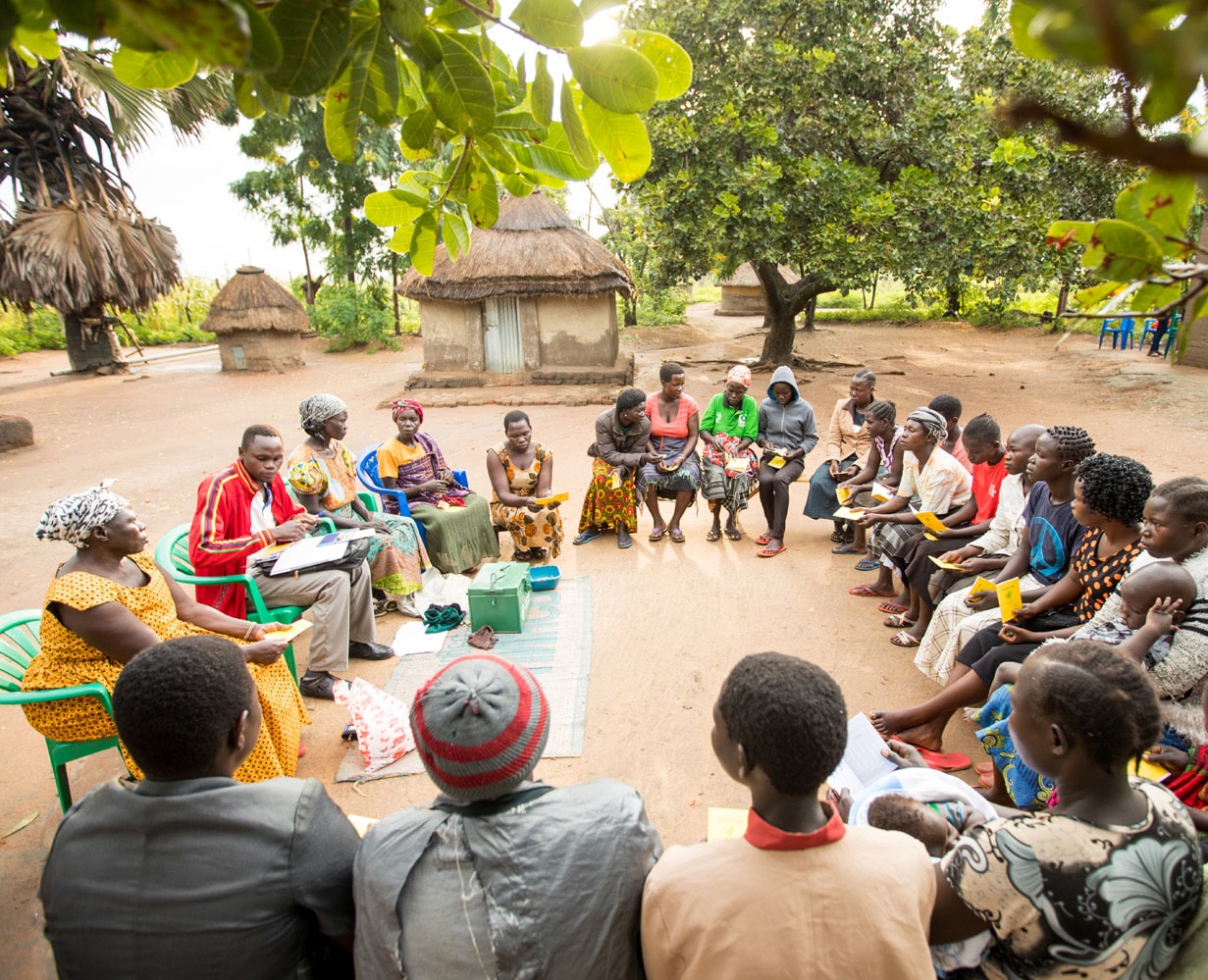Feb 5, 2020 | by Whitney Moret, FHI 360

NGOs have promoted Savings Groups (SGs) in Tanzania since the early 2000s, and they are now a standard economic strengthening intervention in projects designed to benefit orphans and vulnerable children affected by HIV. Though the evidence on SGs is growing, most research is focused on groups that are no older than three years. To better understand how and why long-lasting SGs survive, and to explore whether they continue to benefit children in member households, FHI 360’s ASPIRES project conducted a study titled “What happens when savings groups grow up? Examining savings group sustainability and perceived long-term benefits for members and their dependents in Tanzania.”
We conducted 12 focus group discussions, 24 in-depth interviews, and 4 key informant interviews in the Pwani and Dar es Salaam regions of Tanzania. The study team also observed an SG meeting for each group and conducted a quality assessment of the procedures using an open-source tool developed by VSL Associates.
We found that long-lived SGs in TZ didn’t necessarily follow best practices according to the quality assessment, with most groups scoring either “poor” or “acceptable” instead of “healthy.” Rather than following strong procedures, SGs reported that they were held together by positive relationships based on trust, love, and good leadership. Still, groups reported a number of challenges, especially in the area of low loan repayment and limited loan funds.
Several other issues seemed to be holding groups back. One was reliance on outside funds, such as low- or no-interest loans from local government. These types of loans resulted in low loan repayment, as some group members consider loans “free money” rather than a borrowed sum. Another challenge was low turnover of leaders. Groups tended to be reliant on promoters or long-term leaders for share-out calculations and group operations. This could limit the sense of ownership of the group by members, limit their ability to understand and verify group records, and lead to unequal power relations that could have implications for loan applications.
To address these challenges, ASPIRES developed a two-page handout titled “Daily Reminders for Strong and Self-Reliant Savings Groups” intended for use by savings group members in Tanzania. The main purpose of the document is to promote self-reliant savings group practices, encourage strong and democratic leadership, and reinforce the basic principles behind group savings and lending.
The authors recommend that Savings Groups promoting agencies in Tanzania distribute this guidance directly to group members and review the content with groups. We also encourage groups to keep the document in their cash box and read through pieces of the material at each meeting, especially the section titled “Meeting Checklist.” We welcome the free use and distribution of the material.
To learn more about this study and savings group longevity, check out our Peer Learning Session Understanding Longevity of Savings Groups for HIV-Affected Populations and Beyond at SG2020 in Durban next month! You can register here - limited seats remaining.
For questions, please contact Whitney Moret.
Whitney Moret is an M&E specialist and gender and social inclusion advisor at FHI 360 with nearly a decade of experience working on programs to empower women, youth, and vulnerable populations. She is the former Technical Director of the USAID-funded Accelerating Strategies for Practical Innovation and Research in Economic Strengthening (ASPIRES) project, where she led research initiatives and provided technical assistance to economic strengthening programs across ten African countries. She has published over a dozen technical resources on economic strengthening, including peer-reviewed journal articles, practitioner guidance, and tools for field research and implementation.
Categories: Economic Strengthening and Recovery Financial Inclusion English Savings Groups Blog Blog 2020 WebinarsBlogs

1621 North Kent Street, Ste 900,
Arlington, VA, 22209
P 202.534.1400
F 703.276.1433
Website Photos: © mari matsuri
